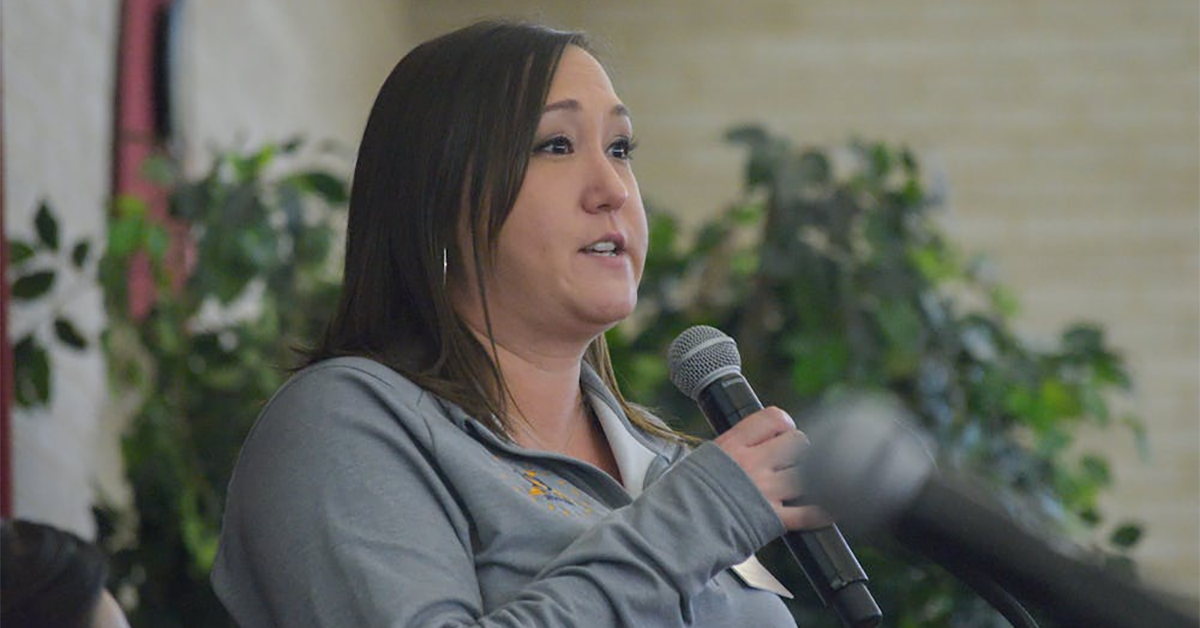House of Dank Spreads Holiday Cheer with Successful Turkey Drive

In a heartwarming gesture of community support, House of Dank, a renowned cannabis retailer, successfully conducted its annual Thanksgiving Turkey Drive this past Tuesday, November 21st, at six of its Michigan locations. The initiative was aimed at distributing free turkeys to families and individuals in need, with doors opening early at each participating House of Dank location and turkeys available while supplies lasted.
Reflecting on the success of the previous year, the 2022 Turkey Drive had notably provided Thanksgiving turkeys to hundreds of Detroit residents, ensuring they had a festive meal for the holiday. This year's event followed in those charitable footsteps, with approximately 50 turkeys being available at each retail location on a first-come, first-served basis, emphasizing that no purchase was necessary to receive a turkey.
Marvin Jamo, the owner of House of Dank, expressed his enthusiasm about the event, highlighting it as a significant tradition for giving back to the communities where the company has its roots and to the newer communities they have expanded into over the years.
The drive welcomed residents from Detroit, Metro Detroit, River Rouge, Lapeer, Saginaw, Bay City, Ypsilanti, Ann Arbor, Monroe, Ohio, and surrounding cities to benefit from the free turkeys, showcasing House of Dank's commitment to reaching a broad segment of the community.
Moreover, this event set the stage for House of Dank's December pledge, where the company will match all canned food and non-perishable food item donations made between November 24th and December 20th at each H.O.D. location. This initiative is part of their ongoing efforts to support local beneficiaries and assist individuals facing food insecurities, especially during the holiday season.
Flower Expo Michigan Set to Debut in 2024: A New Chapter in Cannabis Trade Shows

Flower Expo Michigan is set to make its debut on August 7-8th, 2024, in Lansing, Michigan, at the newly named "Flower Expo Industrial Park." This marks a significant expansion for the Premier B2B Cannabis Trade Show, reflecting the rapid growth of Michigan's cannabis market. This event follows the second Flower Expo Massachusetts, scheduled for June 5-6th in Greenfield, Massachusetts.
The inaugural Massachusetts event last year was a notable success, attracting over 70% of local dispensaries and more than 150 leading brands, including PAX, Cookies, Curaleaf, and Green Thumb Industries. The high attendance and engagement underscored the strong interest within the industry.
Flower Expo is renowned for its focus on connecting buyers and brands. Its unique format, which permits on-site cannabis consumption and live product sampling, offers a dynamic platform for attendees to explore new products, negotiate deals, and network with industry leaders.
Greenfield, Massachusetts, located in New England's Emerald Triangle, proved an ideal launch site for the expo. Flower Expo aims to replicate this success in Michigan, with the Allegan County Fairgrounds near Grand Rapids initially selected as the venue. However, the event will now take place in Lansing to better accommodate the growing interest and participation.
Michigan's cannabis industry has flourished since the legalization of medical marijuana in 2008 and recreational marijuana in 2018. As of 2024, Michigan ranks as one of the largest and fastest-growing cannabis markets in the U.S., contributing significantly to the state's economy. With approximately 10 million residents and tourists from neighboring states where cannabis remains illegal, Michigan provides a substantial and diverse consumer base.
The new venue, Lansing's Flower Expo Industrial Park, offers a grander experience with features like an Outdoor Smoking Lounge, a Food Truck Plaza, a Speaker Series stage, Outdoor Activations, and 32,000 square feet of indoor exhibition space. Attendees can engage with top brands such as Bloom, NOBO, Cloud Cover, Glorious Cannabis, Lion Labs, Pro Gro, and Made by a Farmer.
The expo will host purchasing decision-makers from over 400 dispensaries, including Ascend Wellness, Cloud Cannabis, Cookies, Quality Roots, Lume Cannabis, High Profile, Joyology, GAGE, and Exclusive. Jason Bello, Founder & CEO of Flower Expo, emphasizes the significant opportunities the event presents for exhibitors, aiming to make it a pivotal marketing and sales event with measurable returns on investment.
Emily Chisick, Director of Retail Relations, highlights the expo's commitment to providing a VIP experience for retailers, targeting significant registration from retail stores in Michigan and Massachusetts. The consumption-friendly environment is a key aspect, enhancing the trade show experience by blending business with a relaxed, engaging atmosphere.
As Michigan's cannabis industry continues to expand, driven by a progressive regulatory framework and substantial market size, Flower Expo Michigan stands as a crucial platform for industry professionals. The events in Greenfield and Lansing are poised to be landmark gatherings, shaping the future of the cannabis community.

Recreational Cannabis Establishments Approved in Bad Axe

The Bad Axe City Council, in a significant move, recently approved the introduction of recreational marijuana facilities within the city limits. This decision marks Bad Axe as the first municipality in Huron County to endorse such establishments for recreational use, diverging from neighboring areas like Caseville and Oliver Township, which currently only sanction medical marijuana facilities.
Before the council's decision, Police Chief Shawn Webber, along with former Chief David Rothe, presented their findings from research initiated in March 2022. Webber emphasized the need for detailed ordinances to regulate what would be permissible within the city. He highlighted the potential economic benefits, noting that different license types, especially "retailer" and "micro business," could significantly contribute to municipal revenues. According to his research, each license could generate approximately $51,841 annually, a figure that has been increasing since 2019.
Webber also addressed public safety concerns. He referenced discussions with other municipalities like Bay County, indicating that there had been no notable rise in crime rates in areas with similar facilities. Most issues reported were related to retail fraud, and there was no increase in incidents of driving under the influence.
Webber expressed his support for the initiative, citing his research: "I personally am OK with it and I don't think it's going to increase our crime rates or cause us more work by any means."
The council also deliberated on the potential allocation of revenue generated from the marijuana ordinance. According to Webber, the funds would primarily support the police fund, which could indirectly benefit other city sectors through budget adjustments.
The motion passed with a 4-1 vote, with Councilmember Clark McKimmy opposing and Richard Peterson initially voting against it before opting to abstain, pending further information. Peterson's abstention raised questions about its legal validity.
McKimmy explained his opposition, stating he believed the decision should have been left to the city's voters.
With the council's approval, the city will now begin drafting an ordinance to regulate the operation of these facilities. This includes licensing processes and maintaining compliance with city regulations. City Manager Rebecca Bachman noted that, in collaboration with the planning commission, it could take six months or more to finalize the ordinance. A preliminary draft, informed by Webber's research and contributions from the city attorney, is already in progress and will soon be reviewed by the planning commission.
"Spark Joy, Share Toys": Quality Roots' Initiative to Uplift Children's Spirits

Quality Roots, a Metro Detroit Cannabis Dispensary and recipient of Metro Times Best Of 2023, is once again demonstrating its commitment to community enrichment with the launch of this year's "Spark Joy, Share Toys" drive. This initiative follows the remarkable success of last year's Winter Donation Drive and aims to make an even greater impact in 2023. Teaming up with Toyology and Share Detroit, Quality Roots is focused on brightening the holiday season for children facing difficult circumstances.
The "Spark Joy, Share Toys" campaign is more than just a toy collection; it's about creating unforgettable moments and ensuring that every child experiences the joy of receiving a special gift. This year, the drive supports two notable organizations: A Girl Like Me, which empowers young girls by providing resources and support to build confidence and resilience, and The Blood Cancer Foundation of Michigan, dedicated to improving the lives of those affected by blood cancers through assistance, research, and hope.
Participation in the Giving Tuesday event is straightforward. Community members are invited to drop off new, unwrapped toys at any Quality Roots location. Every type of toy, from board games and stuffed animals to action figures, is welcomed, with each donation contributing to the holiday spirit. Moreover, for each toy donated, Toyology will match with another, doubling the impact.
The campaign, aligned with the global Giving Tuesday movement, will run until November 28th. In an exciting twist, Quality Roots is offering an additional incentive: each toy donated is an entry to win a free Quality Roots ounce, adding a fun element for participants while fostering a spirit of generosity.
This initiative is open to everyone, not just cannabis consumers. Donations can be made at the following Quality Roots locations:
- Quality Roots Hamtramck - 2024 Caniff St, Hamtramck, MI 48212
- Quality Roots Berkley - 3916 W Eleven Mile Rd, Berkley, MI 48072
- Quality Roots Waterford - 1700 Tull Ct, Waterford Twp, MI 48327
- Quality Roots Monroe - 1121 S Monroe St, Monroe, MI 48161
Quality Roots invites the community to join in this heartwarming effort, making a significant difference in the lives of children and adding a touch of magic to their holiday season.
Indigenous Enterprises in Mount Pleasant Eye Marijuana Industry Expansion

In Mount Pleasant, Michigan, indigenous businesses are making a significant impact, managed by the Migizi Economic Development Center (Migizi EDC), a subsidiary of the Saginaw Chippewa Indian Tribe. These businesses, deeply rooted in cultural heritage, are now looking towards future growth, particularly in the marijuana industry.
During the recent "Soup and Substance" event, sponsored by Central Michigan University's Office of Indigenous Affairs and Office of Diversity, Equity and Inclusion, Migizi EDC representatives discussed their ventures and future plans. Panelists included Bonnie Sprague, General Manager of Soaring Eagle Waterpark and Hotel, and Brian Smith, Director of Economic Development at Migizi EDC, among others.
Migizi EDC's portfolio, featuring businesses such as the Soaring Eagle Waterpark and Hotel, is characterized by a strong emphasis on cultural identity. For instance, the Waterpark incorporates the Anishnabemowin language and shares Native American stories and principles, including the revered grandfather teachings. These cultural integrations are part of a broader strategy to embed indigenous heritage into business operations.
A significant revelation at the event was Migizi EDC's interest in expanding into the marijuana sector. Brian Smith elaborated on the challenges faced in this endeavor, stemming from complex interactions between state laws, federal regulations, and tribal sovereignty. Unlike other indigenous businesses, the marijuana industry poses unique regulatory challenges, particularly concerning licensing and banking restrictions.
Smith highlighted the necessity of negotiating with the cannabis regulation industry and the Michigan treasury to align with state requirements while maintaining tribal sovereignty. These efforts are part of a broader strategy to diversify the economic activities of the Saginaw Chippewa Indian Tribe while preserving its cultural integrity and reputation.
This move into the marijuana industry marks a significant step for Migizi EDC, as it navigates the intricate balance between cultural heritage, tribal sovereignty, and regulatory compliance. The potential expansion into this sector demonstrates the evolving landscape of indigenous business enterprises in Michigan and their adaptive strategies in a rapidly changing economic environment.
House of Dank Brings Grammy Winner Future's EVOL Cannabis to Michigan Market

Michigan's cannabis market is witnessing an exciting new chapter as EVOL by Future, the cannabis brand developed by two-time GRAMMY winner Future, makes its debut in the state. This launch, in collaboration with Michigan's renowned cannabis company House of Dank, marks a significant step in expanding the cannabis product range available to consumers in the region.
EVOL by Future, established earlier this year under Carma HoldCo, a branding and licensing firm known for its work with top celebrity and cannabis brands, is set to offer Michigan cannabis enthusiasts a range of high-quality products. These products include elite flower offerings, live rosin vapes, and strain-specific infused pre-rolls, all of which will be available at any House of Dank location starting on November 22nd.
Adam Wilks, Co-founder and CEO of Carma HoldCo, expressed enthusiasm about the partnership, noting that the combination of House of Dank's expertise and Future's global appeal is expected to significantly enhance the cannabis experience in Michigan. Prince Yousif, the owner of House of Dank, also shared his excitement, highlighting Future's substantial impact on modern music and culture. He anticipates that EVOL by Future will resonate with cannabis users in Michigan, much like Future's music has.
With this strategic collaboration, both Carma HoldCo and House of Dank aim to enrich the cannabis culture in Michigan, introducing a line of products that embody quality and innovation, in line with Future's influential brand.


 Helpful Links
Helpful Links